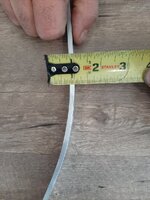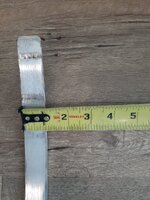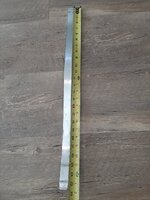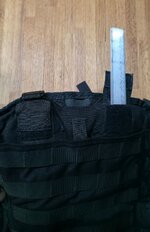6061 is good, assuming you're not bending the s out of it, which I don't think you are. Seek Outside uses 7075 for their frame, but I think that's because they have more extreme bends than what you'll do, plus it's hollow tubing.
I found this link which indicates Kifaru used 7075:
When it comes to modern, internal frame load haulers for big game hunting Kifaru has defined the genre and, web traffic and analytics would have one assume, sells more than any of their competitors…

bedrockandparadox.com
"This pack has 1″ by 1/8″ 7075 stays, while currently Kifaru sells frame with either 1″ by 1/4″ 6000 series stays"
Google AI says:
Aluminum alloy 7075 has a slightly higher modulus of elasticity (around 71.7 GPa) than 6061 aluminum (around 68.9 GPa), indicating that 7075 is stiffer and more resistant to permanent deformation under stress. This makes 7075 a better choice for applications requiring high rigidity and durability, such as aerospace components and high-stress mechanical parts, while 6061 is a versatile, cost-effective option with good weldability, corrosion resistance, and higher thermal conductivity.
Modulus of Elasticity Values
What This Means in Practice
- Stiffness:
The modulus of elasticity is a measure of a material's stiffness. Since 7075 has a higher modulus, it requires more force to produce the same amount of elastic deformation compared to 6061.
- Choose 7075: for applications where high strength and rigidity are paramount, like aircraft structures, high-performance sporting goods, and military hardware.
- Choose 6061: when versatility, cost-effectiveness, and good machinability are more important, such as for general-purpose parts, heat exchangers, and automotive components where good heat dissipation is needed.






